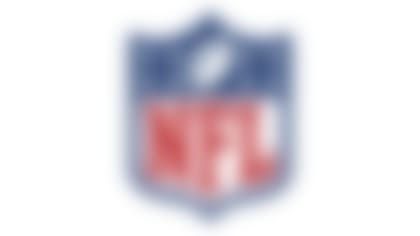In the final lull of the offseason before NFL teams open their training camps, players will have a few more days to relax. Some league executives, however, have yet to begin doing the same.
Instead, some are focused on what they believe is a critically important effort to educate NFL fans on a behind-the-scenes battle over the television blackout policy, which is likely to become a much hotter subject later this year.
"We've been working hard to get awareness out there to understand the importance of the rule and how it fits into the larger broadcast rules that we have," said Adolpho Birch, the NFL's senior vice president of labor policy and government affairs.
"We are the most widely watched programming on television -- and we're trying to make sure we can get the distribution of football to as many fans as possible."
The task, of course, is not an easy one for a number of reasons. Most notably, while the blackout rule sounds simple on the surface (if a stadium doesn't sell out for a particular game, local audiences can't watch it on television), it is far more complicated, full of legal nuance and carrying important implications.
The NFL has teamed up with its broadcast partners and the National Association of Broadcasting to educate fans on their message through a website: ProtectFootballonFreeTV.com.
Birch said the website is intended to show fans the little-known ramifications that would occur if the Federal Communications Commission were to remove the blackout rules that have been in place since 1975.
"The point is to get everybody to understand that all of our rules work together to ensure two things," Birch said.
» First, Birch says, the rule "makes certain we continue to maintain having our games on free television without an issue."
» Second, he believes full stadiums also have an important impact on local economies. "The ancillary benefits of a full stadium are often overlooked. It supports the local economy and business in the area."
Ken Edmonds, the league's director of legislative affairs, said just two of 256 games (267, if you include playoffs) were blacked out last season. The number of games blacked out has steadily decreased since the rule was first installed in 1975, while more than 99 percent of games in 2013 were aired on free television.
Edmonds said this is an important time for the league's efforts to educate the public. FCC Chairman Tom Wheeler recently asked the U.S. Congress' media bureau to look into the blackout rule and make recommendations in early fall.
Wheeler is then expected to consider Congress' evaluation, as well as the opinions of NFL fans and other stakeholders, which is why Birch and Edmonds both are trying to get word out about the league-built website, ProtectFootballonFreeTV.com.
It is an important issue, Birch said, one that has the league's full attention at a time otherwise dedicated to rest.
"Nobody wants blackouts -- but it's a balance to assure we can achieve the objectives," Birch said. "The rule, if eliminated, provides an avenue for the pay-TV interests to show the game at a cost to fans instead of being on free broadcast television."
Follow Jeff Darlington on Twitter @JeffDarlington.











